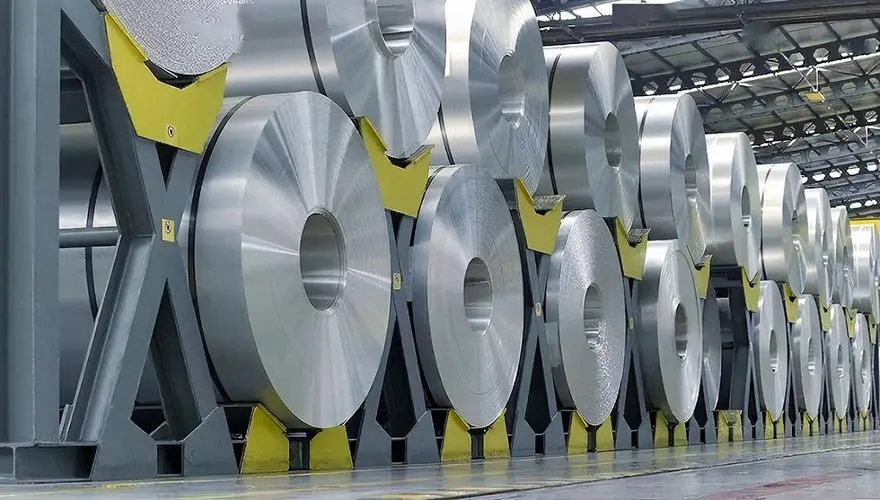国家发展改革委等部门关于印发《电解铝行业节能降碳专项行动计划》的
好文推荐 | 浙大朱利中院士:生物炭“土盔甲”助力土壤温室气体减排
好文推荐 | 浙大朱利中院士:生物炭“土盔甲”助力土壤温室气体减排生物碳固碳 土壤环境 碳封存环境修复网讯:近年来,浙江大学朱利中院士团队致力于研究土壤-生物炭固碳减排的关键影响因
环境修复网讯:近年来,浙江大学朱利中院士团队致力于研究土壤-生物炭固碳减排的关键影响因素、构建宏观规模化固碳应用情景及估算我国土壤-生物炭固碳减排总体潜力等,为揭示生物炭的环境行为和提高土壤-生物炭固碳减排潜力以促进实现碳中和提供科学依据。近日,他们又揭示了生物炭“土盔甲”的奥秘。今天,就让我们来看一看“土盔甲”有何奥秘,它能为碳封存保驾护航吗?
图片摘要 | Graphical Abstract
导读 | Introduction
全球气候变暖是当今社会面临的重要问题。土壤-生物炭固碳是一种有潜力的基于自然的固碳解决方案。近年来Lehmann等人多次在Nature上详细介绍并推荐了该技术。针对他提出的土壤-生物炭固碳大规模实施潜力及可行性等问题,近年来,朱利中院士团队致力于研究土壤-生物炭固碳减排的关键影响因素、构建宏观规模化固碳应用情景及估算我国土壤-生物炭固碳减排总体潜力等,为揭示生物炭的环境行为和提高土壤-生物炭固碳减排潜力以促进实现碳中和提供科学依据。近日,他们又揭示了生物炭“土盔甲”的奥秘。今天,就让我们来看一看“土盔甲”有何奥秘,它能为碳封存保驾护航吗?
Global warming is an important issue facing society today. Bio carbon storage in soils is a potential natural-based solution for carbon sequestration. In recent years, Lehmann and others have repeatedly introduced and recommended this technology in "Nature". In response to the large-scale implementation potential and feasibility of soil-bio carbon sequestration proposed by him, the team of Academician Lizhong Zhu has been committed to systematic researches (i.e. key influencing factors, macro-scale bio application scenarios, the overall potential of bio carbon sequestration in farmland soil in China), which provide scientific basis to maximize the potential of bio carbon sequestration in soil environment to promote the realization of carbon neutrality. Recently, they have revealed the mystery of bio "earth armor". Today, let us take a look at the mystery of the "earth armor". Can it promote carbon storage?
图1.生物炭颗粒表面扫描电镜图
Fig. 1.Scanning electron micrographs of fresh bio and aged bio
2. 生物炭颗粒表面元素组成
EDS结果显示,老化生物炭表面上的硅(Si)、铝(Al)、铁(Fe)和氧(O)等元素含量明显高于新鲜生物炭,但碳元素含量降低,这与生物炭表面附着了土壤矿物,对碳素测定的稀释效应有关。刮除表面物质后老化生物炭中元素(硅除外)含量与新鲜生物炭元素没有显着差异,表明两种生物炭具有相似的性质,老化生物炭积累的矿物元素主要附着在颗粒表面层。
The SEM-EDS results further indicated that the contents of Si, Al, Fe, and O elements on the surface of aged bio were significantly increased, as compared to those on fresh bio which means that the aged bio was attached with soil minerals (e.g.,SiO2). Moreover, the surface contents of soil mineral elements (Si, Al, and Fe) on the aged bio were decreased after scraping the surface substances.
图2.生物炭表面元素X射线能谱分析图
Fig. 2. EDS images of the bio’s surface elements
3. 生物炭矿物组成、吸附性、官能团及抗氧化性
XRD结果支持了老化生物炭上某些矿物质的存在。矿物峰在刮除表面物质的老化生物炭(RBC-B-I和RBC-S-I)中并不存在,表明大多数土壤矿物质聚集在生物炭表面。田间老化后生物炭比表面积显著小于新鲜生物炭(图3b),这与老化后生物炭表面积累了土壤矿物质、阻塞了裂缝和通道相一致(图1d、图2和图3a)。红外结果表明,新鲜生物炭和刮除表面物质层的老化生物炭颗粒中含有一定比例脂肪族碳化合物,然而其在刮除下来的表面物质层(RBC-B-O和RBC-S-O)中并不存在,表明了生物炭表面矿物的覆盖作用(图2、图3a和图3b)或C-H键的氧化作用。氧化试验表明生物炭表面掺杂进矿物以后形成的矿物‑生物炭复合层(即田间老化生物炭颗粒外表层)对化学氧化的抵抗力较高,与老化过程后生物炭上的碳减少和土壤矿物质增加是一致的。化学氧化试验间接证明了老化生物炭上附着的土壤矿物质可以增强生物炭在土壤环境中的抗化学氧化过程。
XRD results further supported the existence of certain minerals on the aged bio. The surface area of the bio after the field aging was significantly smaller than the fresh bio (Fig. 3b), consistent with the mineral accumulation of soil minerals on the surface of the bio after the field aging, which blocked the cracks and channels (Fig. 1d, 2, and 3a). The discrepancy between the FTIR spectra of interior bio and the surface substances indicated the high possibility of organo-mineral complexations, which had been widely reported. The oxidation test showed that the aged bio with composite layer formed has a higher resistance to chemical oxidation than the fresh bio. The chemical oxidation test indirectly proved that the soil minerals attached to the aged bio can enhance the anti-chemical oxidation process of the bio in the soil environment.
图3. 生物炭物理化学性质表征
(a)X射线衍射图谱,(b)比表面积,(c)傅里叶红外图谱(d)氧化实验结果。(“去除表面物质的老化生物炭”缩写为“老化生物炭*”)
Fig. 3. Characterization of physicochemical properties of bio
(a) XRD pattern, (b) SSA, (c) FTIR spectra, and (d) Result of Oxidation experiment. (“Aged bio*” was abbreviated for “Aged bio with surface removed”)
4. 生物炭颗粒机械性能
老化后生物炭显微维氏硬度值显著增加(P<0.05),颗粒抗压强度明显提高(荷载峰值和刚度),表明老化生物炭比新鲜生物炭颗粒能够承受更高的机械压力,使其具有相对较低的潜在环境风险。这有利于抑制颗粒在自然环境中的破碎,从而防止内部不稳定物质向外释放。老化导致了生物炭颗粒机械强度增强,可通过影响减少破碎抑制颗粒内不稳定组分的释放,进一步影响生物炭对土壤中CO2或N2O排放的影响以及对土壤微生物群落结构的影响。
The results suggested the improvement of bio particles’ mechanical strength after the field aging process, which would benefit the sequestration of particle internal structure and substances. The improvement of compressive strength of the aged bio particles indicates that they might be able to withstand a higher mechanical pressure than the fresh bio particles, leading to relative lower potential environmental risks, e.g., less fragmentation, less surface carbon loss, and more benefits for the microbial communities in the bio particles.
图4.机械性能分析
Fig. 4. Mechanical performance analysis
5. 生物炭对土壤CO2或N2O排放的影响
新鲜生物炭对土壤CO2排放没有显著影响,显著减少土壤累积N2O排放;老化生物炭均显著降低土壤的CO2和N2O排放(P<0.05);将老化生物炭表面物质刮除以后,老化生物炭对土壤CO2减排作用消失,对土壤N2O减排作用减弱。老化生物炭可抑制土壤CO2排放,可能是由于外表面土壤矿物质与含氧官能团共积累所形成有机-矿物质复合物通过空间位阻稳定了生物炭中的有机碳,降低其对于微生物的有效性;或通过微孔吸附保护锁定微生物所需碳氮源来抑制微生物呼吸作用。该结果表明,老化生物炭的表面物质(含较多有机-矿物复合体)在影响土壤CO2和N2O排放中起重要作用。
Fresh bio had no significant impact on soilCO2emissions, and significantly reduced soil accumulatedN2Oemissions; aged bio further significantly reduced soilCO2andN2Oemissions (P<0.05); after scraping off the surface material of aged bio, the soilCO2emission reduction effect of aged bio has disappeared while the soilN2Oemission reduction effect was weakened. The results indicated that the surface material of the aged bio (containing more organic-mineral complexes) played an important role in reducing soilCO2andN2Oemissions.
图5. 土壤CO2或N2O排放速率或累积排放量
(“去除表面物质的老化生物炭”缩写为“老化生物炭*”)
Fig. 5. The impact of bio on soilCO2orN2Oemissions
(“Aged bio*” was abbreviated for “Aged bio without surface substances”)
总结 | Conclusions
田间老化使生物炭表面积累矿物质,形成有机-矿物复合体,从而增强颗粒物理稳定性(如机械强度),显著减少土壤CO2和N2O排放。因此新鲜生物炭使用之前,通过人为或自然的方法去除不稳定组分及构建富含有机-矿物复合体的保护界面,对于增强其在土壤中固碳减排潜力具有重要意义。
These results indicate that soil minerals could accumulate on the bio during the field aging process, forming organo-mineral complexes, blocking the cracks and channels of the bio, and improving its mechanical properties. The improved mechanical properties could inhibit the fragmentation of bio particles, reducing the release of labile fractions from the bio and the subsequentCO2andN2Oemissions. These findings also indicate that adjusting the mechanical properties of bio particles to improve their physical stability before adding them into the soil, may be a potential way to better control the release of soilCO2andN2Oemissions.
原标题:好文推荐 | 浙大朱利中院士:生物炭“土盔甲”助力土壤温室气体减排
-
华熙生物加班生产医用消毒产品 捐赠驰援肺炎疫情防控前线2024-08-19
-
安图生物:拟捐赠价值1100万医疗设备抗击疫情2024-08-19
-
华熙生物:向高新区疫情处置一线捐赠消毒凝胶2024-08-19
-
美年大健康、硕世生物联手抗疫 1800万元新冠肺炎试剂及仪器驰援武汉2024-08-19
-
洪浩:碳中和背景下生物质供热产业的热机遇与冷思考2021-09-06
-
生物滴滤池处理异味恶臭/VOCs 废气的影响因素解析2021-09-06
-
土壤团聚体氧化亚氮排放及其微生物学机制研究进展2021-09-02
-
20个生物质发电项目 2021年第十六批可再生能源发电补贴项目清单公布2021-09-01
-
央补退坡 会否影响生物质发电新项目上马?2021-09-01
-
宁夏印发《宁夏回族自治区农林生物质发电项目防治掺煤管理办法》(试行)2021-08-31
-
碳中和背景下的生物质能2021-08-31
-
十四五期间生物质发电享有的政策性补贴2021-08-27
-
我国农林生物质发电产业存在的深度问题2021-08-27
-
济南城区首家生物质热电厂1号机组并网一次成功2021-08-27
-
吉林省《生物质成型燃煤锅炉大气污染物排放标准》再次征求意见2021-08-27


